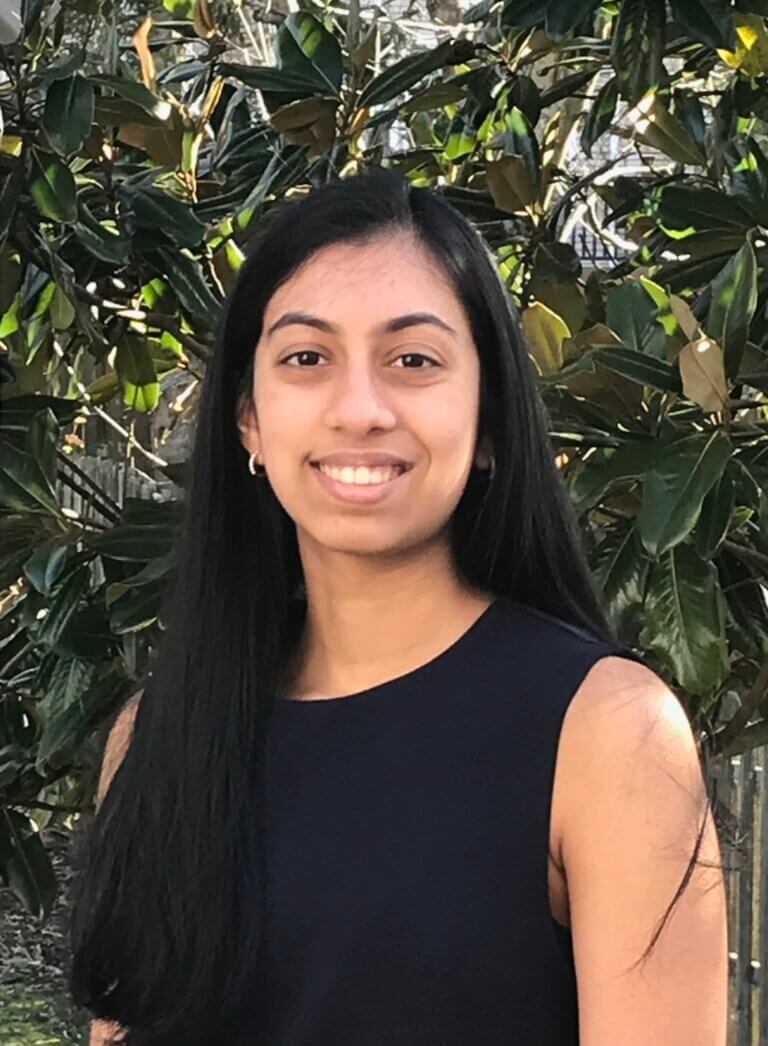Lasya Balachandran
Electrical Engineering and Computer Science major
Mathematics major
Science, Technology, and Society minor

What’ve you enjoyed most about your area of study? Was there a particular discovery, new skill or way of thinking, or insight that you found especially valuable? Please share an example from your favorite class or experience.
STS classes have shown the world to be an intricate network of connections and have challenged me to reflect on the importance of our values for the advancement of science, allowing me to contextualize the development of future technologies for the improvement of society. I’ve had the opportunity to take a wide range of STS classes, including classes that examined the historical motivations of researchers and science activists to better understand the intersections of science, ethics, and public policy and explored the history of finance to understand its impact on modern financial technologies. One of my favorite classes was STS.014 where we not only studied the connection between the mind and the body through discussion and physical activity but also had the opportunity to construct innovative lesson plans that integrated movement into the study of mathematical, scientific, or engineering concepts for younger students.
How does the knowledge from this field, or your interest in it, combine with your other major or minor studies at MIT?
My STS classes have complemented the technical breadth and depth of knowledge that I have gained from my EECS classes by driving the importance of the interconnectedness of historical events, modern advancements, and societal implications of new technologies. For example, as a final project in one of my STS classes, I examined the evolution of GPS from a military technology to a societal necessity due to its broad applicability. I learned that as new technologies emerge and evolve over time with future advancements, the technologies may have unintended socioeconomic and ethical implications — some positive and some negative. As I work on researching and developing computing architectures in the future, I will use the historical insights and other perspectives I have gained through my STS classes to be more mindful of the factors that define the impact of the technology and how society’s use for the technology may evolve over time.
An MIT education includes study in the scientific, technical, social science, arts, and humanities fields. How do you think that wide range of knowledge and perspectives will be valuable to you – for your career success and for your enjoyment of life?
I have really enjoyed the wide variety of classes I have taken at MIT. My EECS and math classes have helped me build a strong theoretical foundation and taught me how to apply my skills in researching and developing innovative technologies, while my STS classes have allowed me to understand the societal value and impact of these technologies. I first decided to take STS classes due to the wide breadth of the course offerings and unique teaching styles, including classes such as STS.014 and STS.041 that focus on understanding societal implications through experiential learning. These hands-on and discussion-based classes provided a nice contrast to my technical coursework and allowed me to meet many other students whose perspectives enhanced my own. Imagine walking the streets of Boston to learn about MIT’s campus pre-1916 or visiting a playground to design a lesson that focuses on integrating movement with the study of a technical concept!
What are your plans for the future?
I am currently pursuing research at MIT Lincoln Laboratory as part of my Master of Engineering in Electrical Engineering and Computer Science. In the future, I hope to conduct research related to high performance computing architectures and technologies.
